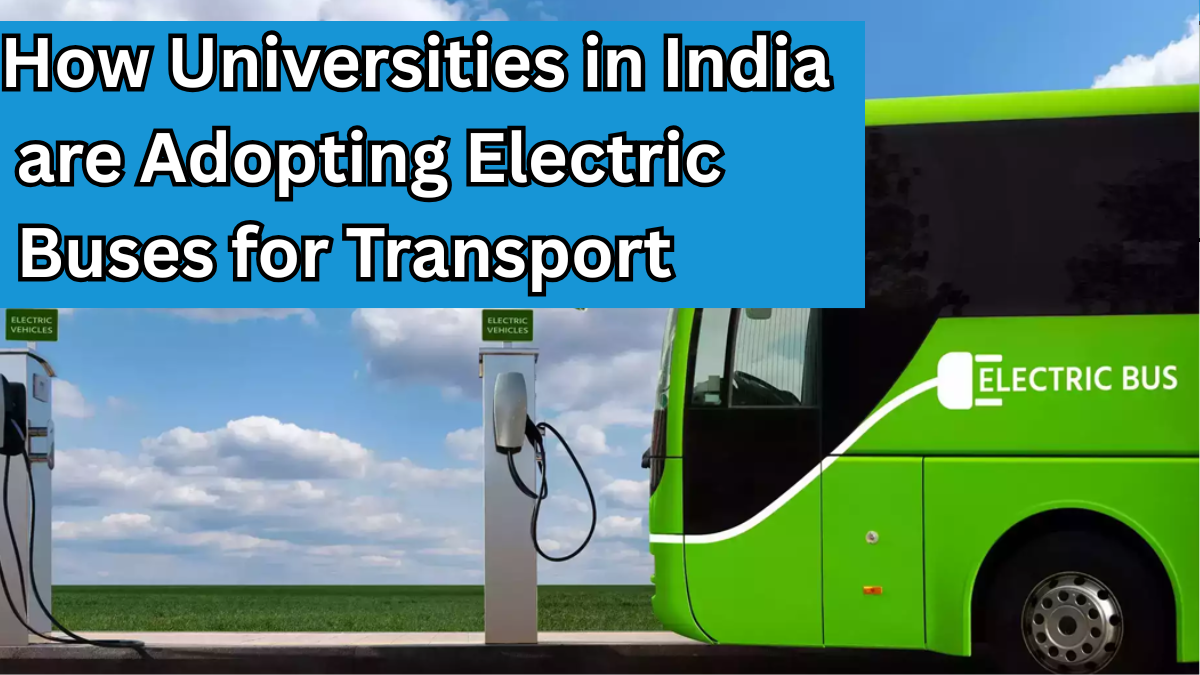Universities across India are now embracing sustainability with open arms. Many campuses are shifting towards University EV Buses to modernize their Campus Transport systems. This eco-friendly step is not just about innovation—it’s about responsibility.
Let’s explore how this transition is reshaping student travel and campus environments.

Why Universities are Switching to EV Buses
The adoption of University EV Buses is gaining momentum due to several key reasons:
-
Environmental Responsibility: Focused on reducing air pollution around campuses.
-
Cost Efficiency: EV buses have lower operational and maintenance costs.
-
Government Support: Policies and subsidies promote the shift to electric transport.
-
Student Advocacy: Students are pushing for greener, sustainable solutions.
Key Benefits of University EV Buses for Campus Transport
Advantages of Electric Buses on Campus
| Benefits | Impact on Campus |
|---|---|
| Zero Emissions | Cleaner air and healthier surroundings |
| Quiet Operation | Lower noise levels across the campus |
| Lower Running Costs | Reduced fuel and maintenance expenses |
| Smooth Campus Commute | Comfortable, safe, and efficient rides |
| Government Incentives | Financial aid for EV infrastructure |
Electric buses are revolutionizing Campus Transport by offering these substantial advantages.
Top Indian Universities Leading the EV Bus Movement
Several leading universities have already integrated University EV Buses into their Campus Transport networks:
-
Jawaharlal Nehru University (JNU), Delhi: Deployed EV buses for daily campus commuting.
-
IIT Delhi: Phasing out diesel buses in favor of electric buses for students and faculty.
-
University of Hyderabad: Uses electric buses to operate eco-friendly campus shuttles.
-
Amrita Vishwa Vidyapeetham, Coimbatore: Early adopter of EV buses for campus tours and regular transport.
These universities are pioneering sustainable Campus Transport solutions in India.
Challenges Faced in EV Bus Implementation
While the movement is positive, universities face some practical challenges:
-
High Initial Investment: EV buses have a higher purchase cost compared to diesel buses.
-
Charging Infrastructure Gaps: Campuses need to develop proper EV charging facilities.
-
Battery Limitations: EV buses require regular charging due to limited battery range.
-
Training Requirements: Drivers need special training to operate electric buses safely.
Despite these hurdles, universities see long-term value in adopting University EV Buses.
Government Push for Campus EV Adoption
The government is supporting the shift through several initiatives:
-
FAME India Scheme: Offers subsidies to educational institutions for buying EV buses.
-
State EV Policies: Encourage the use of EVs on campuses with additional benefits.
-
Financial Support: Low-interest loans and incentives make University EV Bus adoption more affordable.
These steps are making it easier for universities to modernize their Campus Transport with electric mobility.
FAQs
1. Why are universities in India adopting EV buses for campus transport?
Universities are adopting University EV Buses to cut pollution, lower long-term costs, and promote sustainability on their campuses.
2. How are University EV Buses improving campus transport?
They offer zero emissions, quiet operation, and cost-effective commuting, significantly improving the quality and efficiency of Campus Transport.
3. What are the major challenges in implementing University EV Buses?
The main challenges include high upfront investment, limited charging infrastructure, battery range concerns, and the need for trained drivers.
4. Are there government incentives for universities adopting electric buses?
Yes, the government provides subsidies, low-interest loans, and state-level benefits to encourage University EV Bus adoption for greener campuses.
Click here to learn more